New Orleans, which was dubbed America’s murder capital just two years ago during a post-COVID crime spike, has recorded a decrease in homicides by about 50% since 2022, including a 71% drop in juvenile homicides since 2023.
Anne Kirkpatrick, who was named superintendent of the New Orleans Police Department — the equivalent of a police chief — just last year, attributes the recent success in preventing violent crime to collaboration between local, federal and state officials.
“There has definitely been a turnaround in this city,” Kirkpatrick told Fox News Digital. “We are, by far, outpacing the national trend. … There is a national trend of a drop in these rates. Ours are twice what the national trend is. It is not by accident, and it is intentional. We actually are very strategic, and we can point to a couple of strategies that we know are making a difference.”
The police superintendent noted that the police department speaks weekly with community organizations, state police, federal authorities and district attorneys.
ON THIS DAY IN HISTORY, AUG 29, 2005, HURRICANE KATRINA SLAMS GULF COAST, CAUSING MASSIVE DAMAGE
“We literally get together once a week in discussion, and then we use a policing strategy that has been around for a while,” Kirkpatrick explained.
That strategy is called Operation Ceasefire, which originated in Boston and which New Orleans has adopted with its own unique take on the model specific to New Orleans crime.
ILLEGAL IMMIGRANT ACCUSED OF KILLING JOURNALIST IN NEW ORLEANS CRASH
“We have named it GRIP, which stands for Gun Reduction Intervention Plan. So, in a big-picture way, we know that we have certain repeat offenders who use guns. We call them trigger-pullers,” the superintendent explained. “These are people that are identified, and therefore, we focus on the offenders. So, when you have a small group of people who are responsible for most of the violent crime, it’s really a strategy that goes: identify them … try to intervene and disrupt that cycle. … We will arrest and incarcerate you if we have to, but we also are taking a holistic, public health approach.”
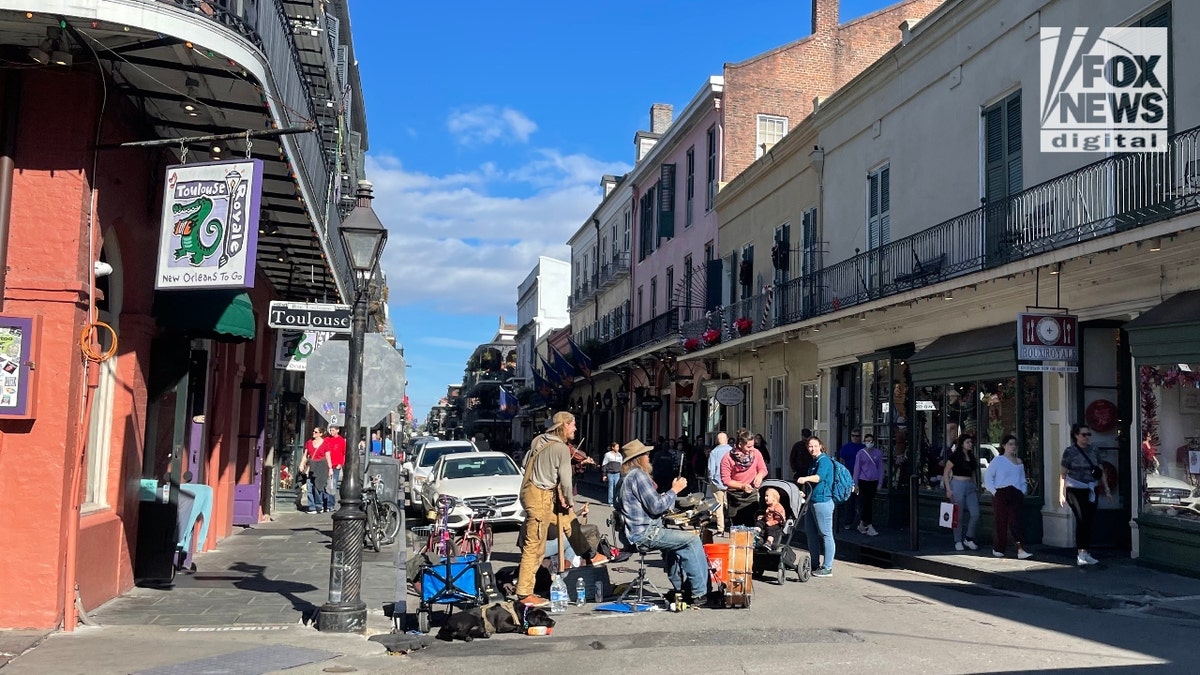
Michael Hecht, CEO of the Greater New Orleans Inc. nonprofit that aims to better the city’s businesses and overall quality of life, similarly said that while major cities across the United States have generally seen a decrease in homicides between 2020 and now, The Big Easy saw a particularly drastic drop in violent crime.
“Two years ago, New Orleans was really on the precipice. In 2019, we had enjoyed a 19-year low in homicides. So, it was shocking and really quite tragic, then, in 2022, we were suddenly on a trajectory to become the homicide capital of the country,” Hecht explained. “And that was deemed to be, first and foremost, morally unacceptable but also economically potentially devastating.”
NEW ORLEANS CLOSES 2022 WITH SKY-HIGH HOMICIDE RATE NOT SEEN IN DECADES: ‘HORRIFIC’
Hecht noted that on top of the murder surge, there was also an increase in carjackings and a general “sense of terror across all neighborhoods” during and in the aftermath of the COVID-19 pandemic.
“Since those dark days of 2022, our murder rate is down 50%,” Hecht said. “And most importantly, over the last year, the juvenile homicide rate is down over 70%. Shootings have declined by a similar amount. Carjackings have declined by almost 70%. And armed robberies have declined by 55%.”
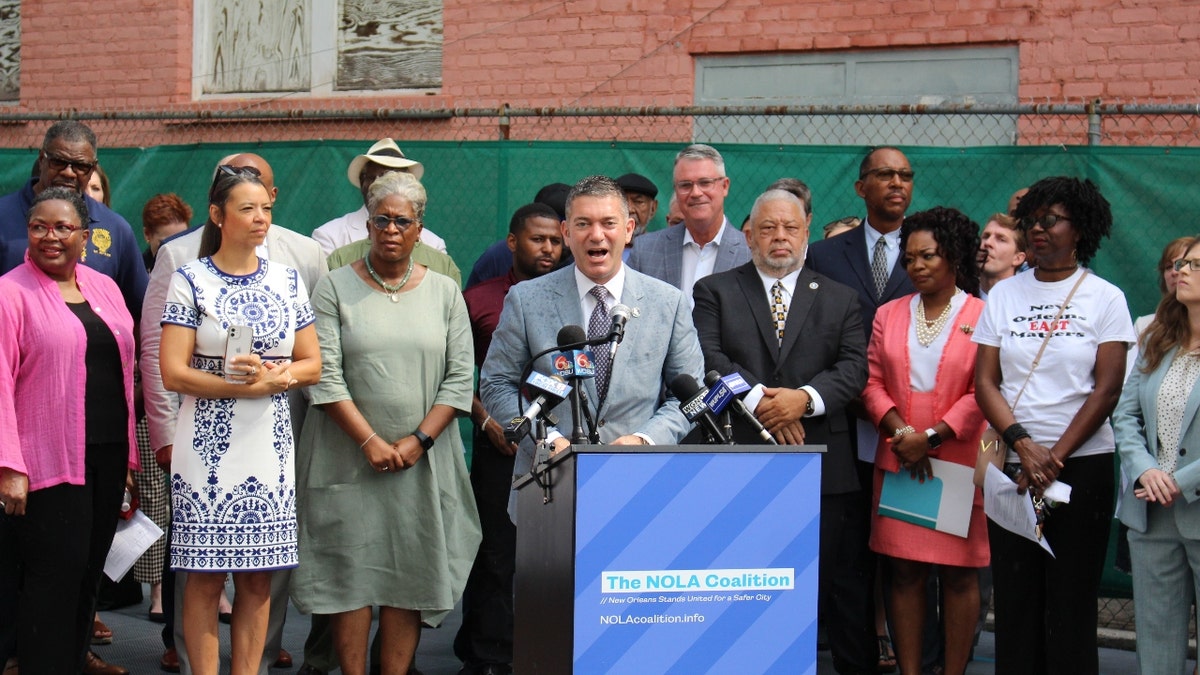
In response to arguments that other cities are seeing the same trend, Hecht noted that New Orleans “is actually enjoying the fourth-steepest average decline across all major categories of crime of any major city in the United States,” and the city is also doing “about three to four times better than the national trend,” citing an analysis from the Major Cities Chiefs Association.
How were city leaders able to accomplish such a feat? Hecht pointed to several different actions and organizations that stepped up to help curb crime, including Louisiana Gov. Jeffrey Landry’s efforts to sign legislation aimed at preventing violence and increasing punishments for fentanyl dealing and carjacking, as well as creating a specialized law enforcement unit called Troop NOLA.
NEW ORLEANS DA RELEASED VIOLENT CONVICTS ONTO THE STREETS BEFORE NEW OVERSIGHT LAW TOOK EFFECT: REPORT
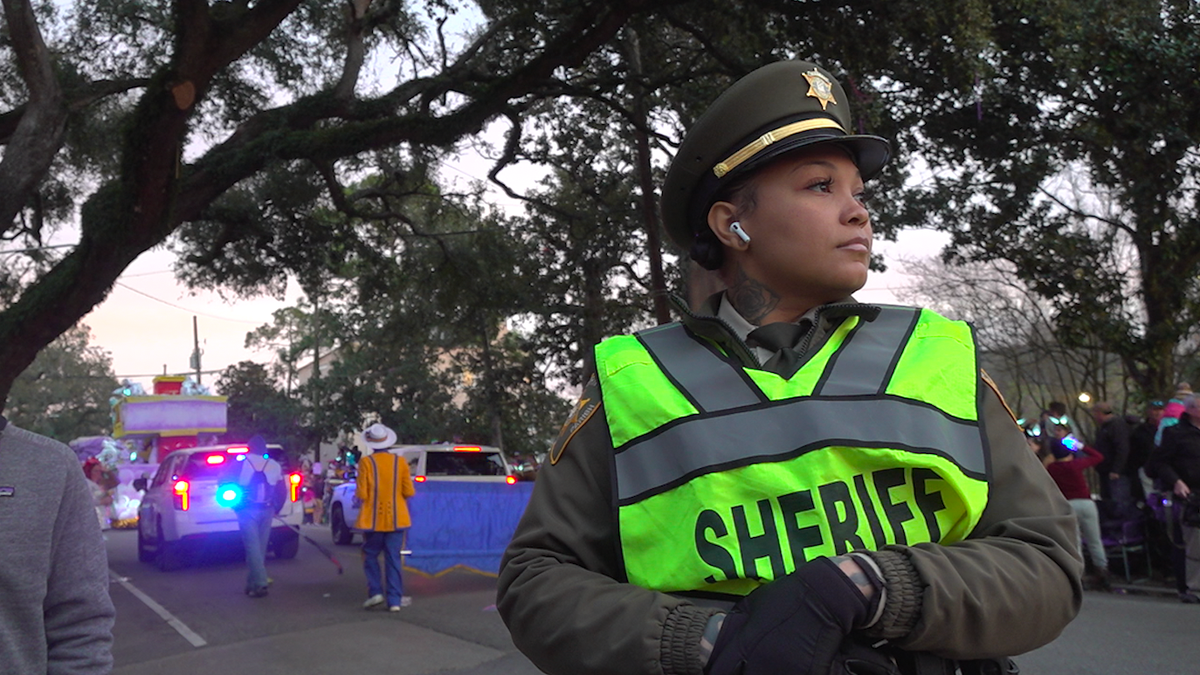
Hecht also noted three specific initiatives that Greater New Orleans believes helped lower homicide numbers: first, “more proactive policing, particularly targeting the worst of the worst to get them off the streets”; second, enhanced use of modern technology that helps improve the New Orleans Police Department’s “solve rate”; and third, more cooperation between federal, state and local authorities.
NEW ORLEANS TEEN MAY BE TRAFFICKING VICTIM AFTER SHE VANISHED FROM GROUP TRIP TO MUSEUM
“There have been ideologies or communities that have been just focus on policing or just focus on systemic issues. And we’ve said, ‘No, you need to focus on both of them simultaneously because, of course, there’s a feedback loop. If you don’t have safety today, then you’re not going to have resources to invest in tomorrow.”
As far as the significant drop in juvenile crime, Hecht pointed to the fact that public schools in New Orleans struggled during the pandemic, which led more juveniles to turn to crime and violence, but they have since “posted some of the strongest gains in the state.”
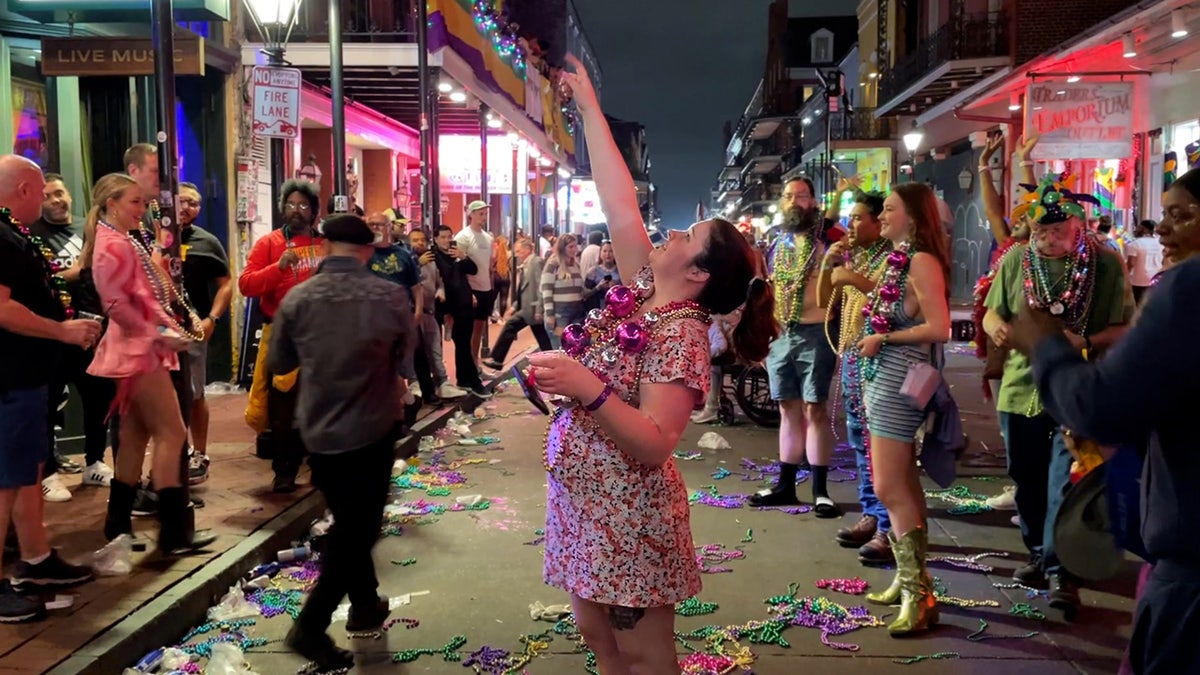
The New Orleans Career Center has put a heavy emphasis on helping local youth get jobs to keep them away from violence.
“There’s no question, as many say, that nothing stops a bullet like a job.”
Leaders have also made improvements to recreational sports, and faith-based communities have helped provide counseling services to “kids that are having trouble at home.” The CEO mentioned the NOLA Coalition, an organization made up of members of all walks of New Orleans life, including Greater New Orleans, that aims to “create a safer and more prosperous New Orleans for all residents.”
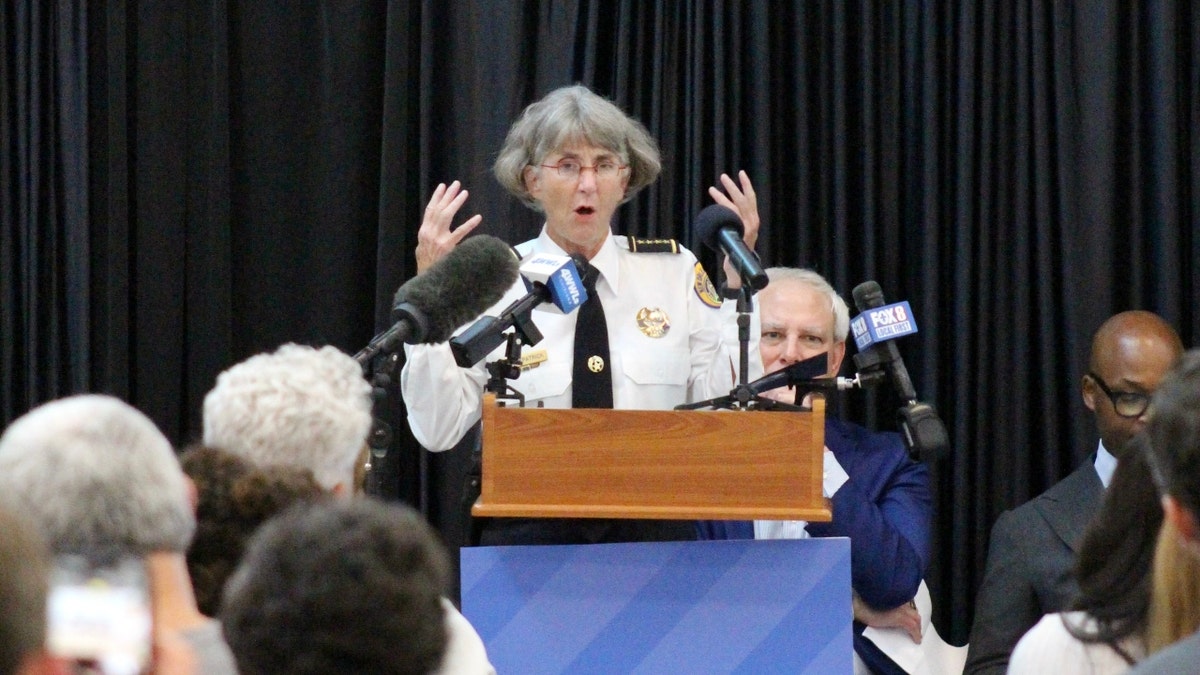
“What the NOLA Coalition did by representing a constituency that was so diverse — black and white, Republican, Democrat, rich and poor, that really represented the fabric of the city … is it created what I call ‘positive pressure’ on our leadership to do the right thing, whether that was investing more money in conditions for our police officers or investing more money in our schools, and we also put our money where our mouth is by raising this money from the local corporate community,” Hecht said. “We demonstrated that we weren’t just all talk.”
“We demonstrated that we weren’t just all talk.”
That increased investment in the city allowed New Orleans to hire Kirkpatrick, who Hecht said has “undoubtedly been part of the success story.”
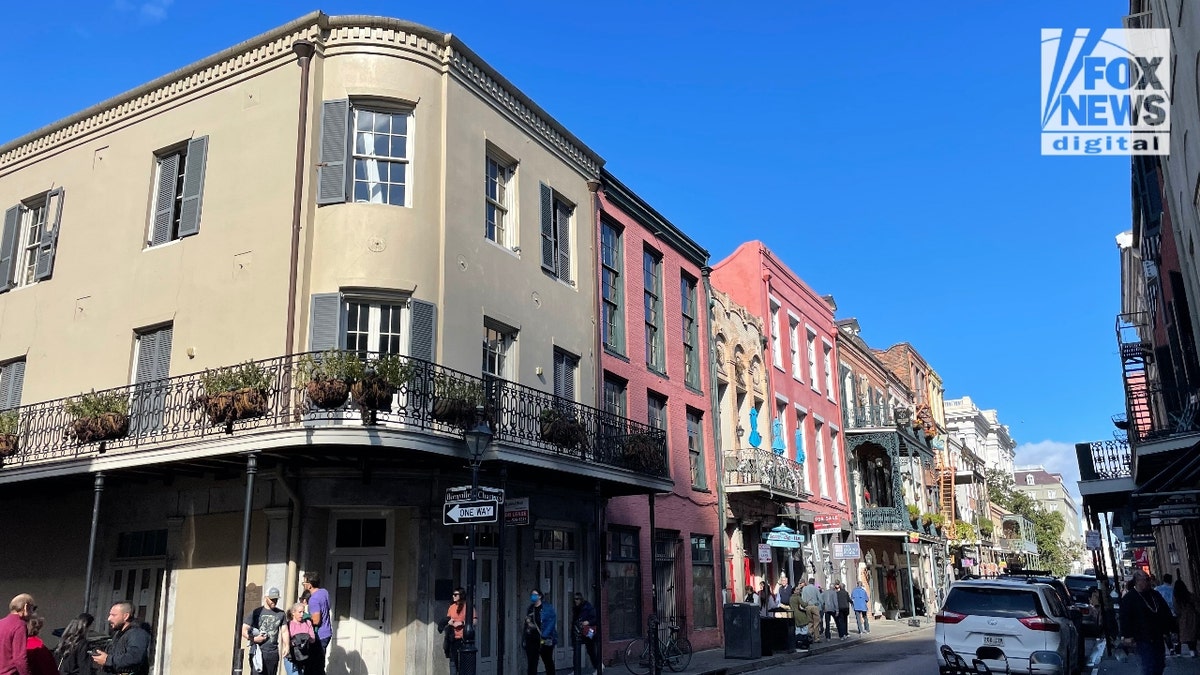
The NOLA Coalition has also raised $8 million of its $15 million to support local youth programs like mentoring and mental health services, as well as recreational improvements.
“The closure of the schools, combined with the national pullback on proactive policing, combined to create this toxic environment that was very dangerous. And so the fact that we’ve reversed it so dramatically is encouraging, but it’s also pretty startling,” Hecht said. “I mean, when we started the NOLA Coalition two years ago, our intention, our hope, was to abate the violence. If you had said success is going to look like in two years, you’re going to be number four in the country for the most rapid decrease, I would have said … that’s a nice North Star. But we’re dealing with a lot of complexities here. So, it’s been pretty head-snapping.”
KENDRICK LAMAR HEADLINES SUPER BOWL LIX’S HALFTIME SHOW
Compared to national numbers from the Major Cities Chiefs Association, New Orleans has seen an approximate 45% decrease in homicides since last year (about 50% compared to 2022), whereas there was an average 18% drop in homicides nationally across major cities. New Orleans also recorded a 44% decrease in robberies and a 21% decrease in aggravated assaults this year compared to last, whereas nationally, cities recorded an average 8% decrease in homicides and a 5% drop in aggravated assault.

The positive change is welcome news for The Big Easy, which is hosting Super Bowl LIX on Feb. 9. Hecht said New Orleans leaders, including himself, are making infrastructure improvements leading up to America’s most-watched event, but they plan on maintaining and continuing those improvements after the game.
FBI Director Christopher Wray praised the city’s work during a visit this month, describing their results in combating violent crime as “extraordinary.”
“It’s something we want to replicate going forward,” Wray said, according to Nola.com.
Read the full article here

